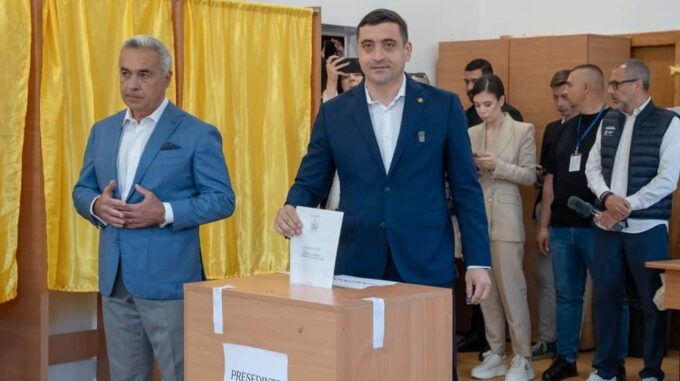The far-right candidate Simion is leading the Romanian elections: according to preliminary exit polls, he is in the lead for the presidential race

For a long time, various political forces dominated the country's political landscape, but currently the name George Simion has come to the forefront. He is the leader of the radical party AUR, which received approximately thirty to thirty-three percent of the votes in the first round. Such a high result was a surprise to many analysts and indicates a growing sentiment among a portion of the Romanian electorate that seeks radical change and is disillusioned with traditional political forces. According to sources within Romanian television Digi24, the battle for second place has been intense and substantial. The contest is ongoing between the incumbent Antonescu, a candidate supported by the political coalition comprising PSD, PNL, and UDMR, and independent contender Nikushor Dan. Both candidates have nearly equal support — about 21–23%. These figures suggest a complex scenario in which one of them is likely to indirectly secure the second ticket to the runoff scheduled for May 18. The main rival candidate to Simion, characterized as pro-Russian and somewhat critical of the EU, has not yet officially confirmed his participation, and the vote results still need to be officially tallied and announced. Evidently, this phase carries tension and surprises, as the frontrunner with an ultra-right image is already effectively securing a place in the second round of elections. The background to these presidential race developments is also interesting: on May 4, a repeat voting cycle was held, as the previous elections in November 2024 were annulled due to suspicions of external interference. According to reports, external actors, notably from Russia, attempted to influence the outcome by supporting ultranationalists, including Kelina Jorjescu. Despite his candidacy not being officially recognized, Jorjescu was later disqualified from the process, and his participation in the elections remains in question. Meanwhile, George Simion announced that his possible victory could pave the way for the appointment of Jorjescu to leading positions, despite him being officially barred from running. This provocative statement highlights the tension and the evolving political scene, which could lead to unexpected changes in the future. Thus, the upcoming second round of Romania’s presidential elections promises to be tense and pivotal for the country’s future direction. The results emerging just before May 18 will serve as a crucial indicator of social and political sentiments and the geopolitical balance in the Central and Eastern European region.

